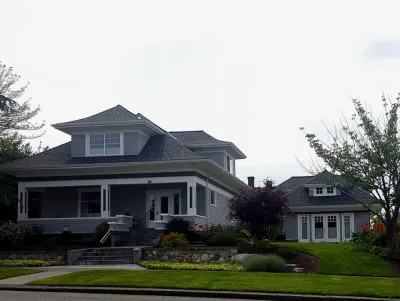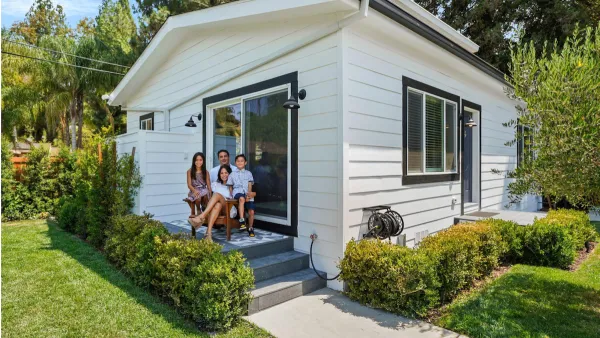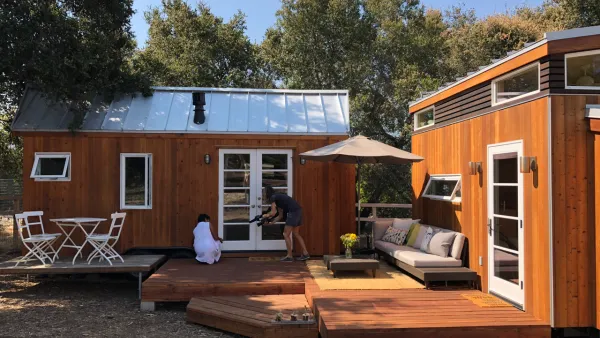Although state-level laws are making it easier for homeowners to build accessory dwelling units, high impact and development fees remain a major barrier for many prospective ADU builders.

While many states are liberalizing regulations related to accessory dwelling units (ADUs) to make ‘granny flats’ easier to build, “local governments remain the key gatekeepers when it comes to ADU liberalization,” writes Mike Koenig in HousingWire.
For Koenig, there’s still work to do to ensure property owners around the country can easily and affordably build backyard cottages or other add-on units on residential lots that can help gently increase density and improve housing affordability.
“As state legislatures continue to press municipalities to ease or remove ADU-related restrictions (13 and counting have done so), utility and other fees—collectively known as impact fees—move toward the center of pro-ADU policy discussions. That’s because impact fees can add up to more than enough to stifle ADU development.” Koenig recommends a few ways cities can ensure their regulations aren’t limiting ADU production, including prorating impact fees and waiving certain development fees.
Koenig points out that the higher density created by ADUs can bring long-term benefits to the community beyond housing affordability, including higher tax revenues. But while costs and other barriers remain high, “States and municipalities have come a long way in smoothing the paths forward for those who hope to add vital infill housing through ADUs.”
FULL STORY: Opinion: States are making ADUs easier to build. Now it’s up to municipalities to follow suit.

Analysis: Cybertruck Fatality Rate Far Exceeds That of Ford Pinto
The Tesla Cybertruck was recalled seven times last year.

National Parks Layoffs Will Cause Communities to Lose Billions
Thousands of essential park workers were laid off this week, just before the busy spring break season.

Retro-silient?: America’s First “Eco-burb,” The Woodlands Turns 50
A master-planned community north of Houston offers lessons on green infrastructure and resilient design, but falls short of its founder’s lofty affordability and walkability goals.

Test News Post 1
This is a summary

Analysis: Cybertruck Fatality Rate Far Exceeds That of Ford Pinto
The Tesla Cybertruck was recalled seven times last year.

Test News Headline 46
Test for the image on the front page.
Urban Design for Planners 1: Software Tools
This six-course series explores essential urban design concepts using open source software and equips planners with the tools they need to participate fully in the urban design process.
Planning for Universal Design
Learn the tools for implementing Universal Design in planning regulations.
EMC Planning Group, Inc.
Planetizen
Planetizen
Mpact (formerly Rail~Volution)
Great Falls Development Authority, Inc.
HUDs Office of Policy Development and Research
NYU Wagner Graduate School of Public Service




























